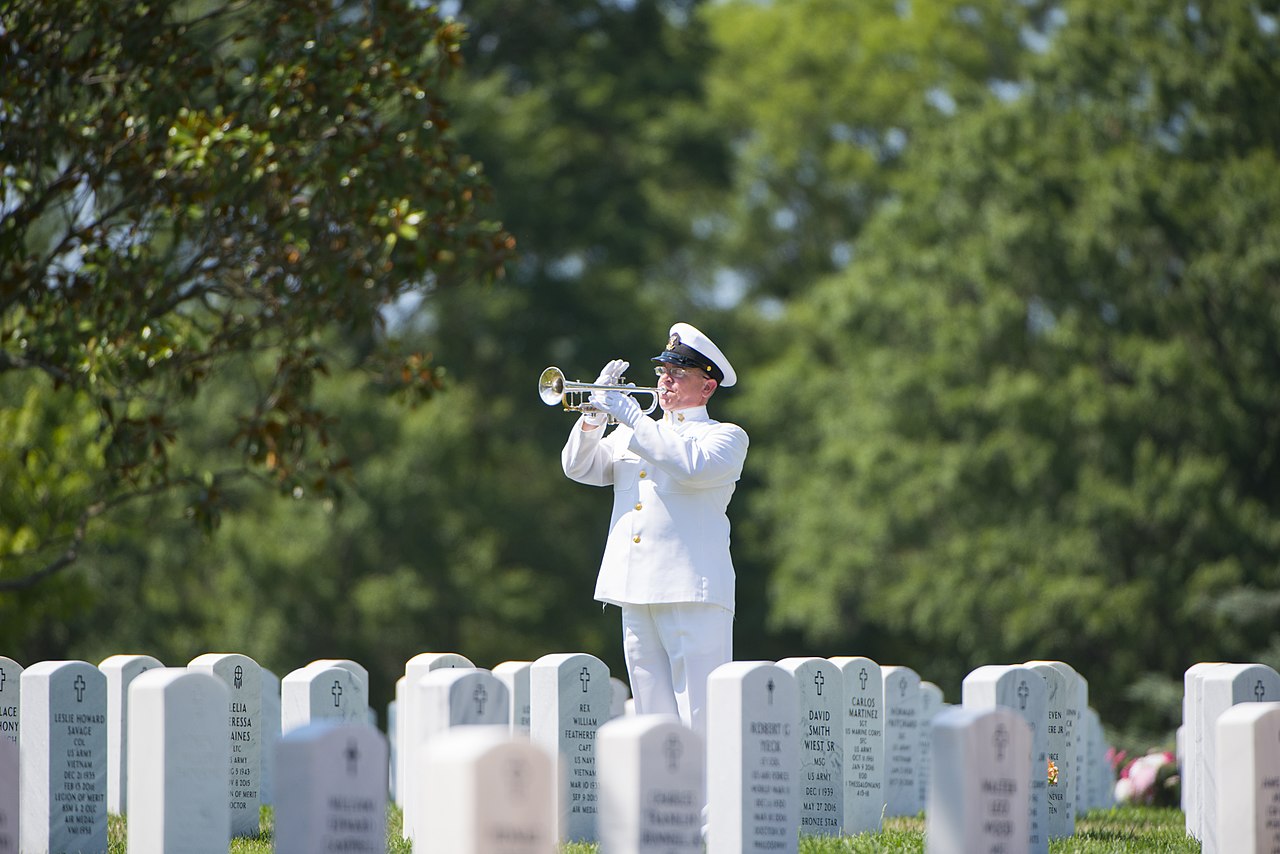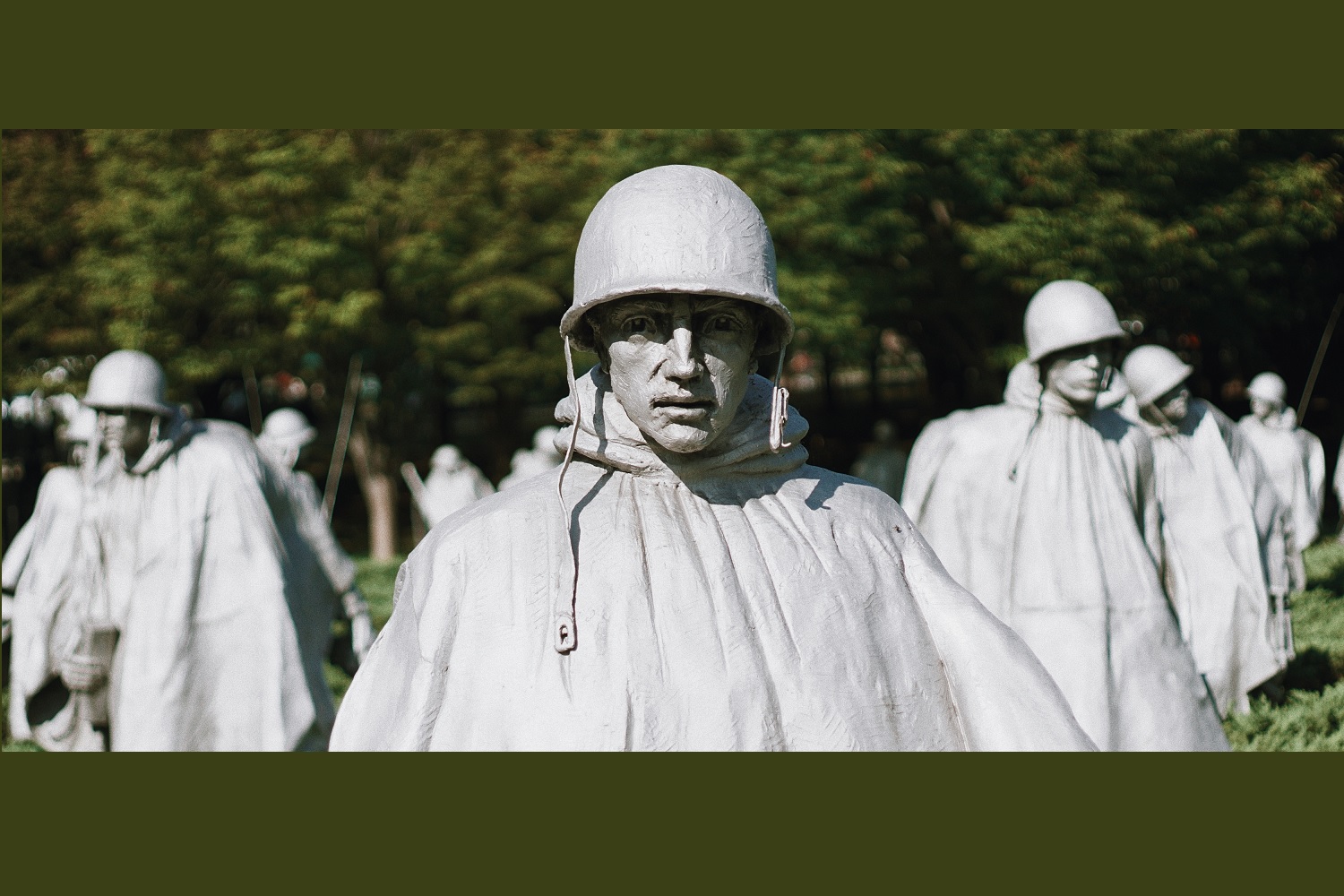Leave No Stone Unturned
[NB: check the byline, thanks. /~Rayne]
Memorial Day as a kid meant traveling long hours in the car with my family – over the years three, and then four siblings swimming around for more than eight hours in the back of the land whale known as the Chrysler 300 station wagon.
We’d crawl out of that avocado-colored earthbound leviathan like so many chewed-up Jonahs, reeking of tuna fish sandwiches, exhausted but ready for fresh air and sunshine, hot dogs and flag waving, candy thrown from the local firetruck along the day’s celebratory parade route.
Nobody was ready for my uncle, though, not ever. Let’s call him Ralph since he has always reminded me a bit of the hard right conservative character in the 1970s cartoon, Wait Till Your Father Gets Home. Meld Ralph with Norman Lear’s Archie Bunker and you’d have a pretty good bead on my uncle’s persona.
Uncle Ralph — my great-uncle, being my grandfather’s younger brother — would’ve been among the other local veterans marching in the parade from the township hall to the cemetery at the opposite end of town. He’d have dusted off his dress uniform for the occasion though it had become a bit snug around the middle. I avoided getting too close to the man to see if his green wool serge had any moth holes as I suspected it might.
The man was a hard ass, no doubt about it. He was a dick to everyone around him. I don’t know what his long-suffering wife saw in the man or how she managed to stick it out with him for his lifetime apart from their intense Catholicism and their five kids. Nor was he less difficult with other family outside of his wife and kids; he’d screwed several family members with real estate deals he cooked up. Don’t get my mom started about him, yeesh – you’ll draw back with a bloody stump where your ear once was.
But on Memorial Day every year, on arrival at the cemetery, that snapping turtle of a man softened like ice cream on a summer’s day. Watching him stand at attention as the trumpeter played Taps and the flag was raised, you could see in his face something wordless and deep. It remained with him as he visited the veterans’ headstones in the cemetery, fussing with the flags and flowers on each burial plot.
I never saw this timeworn anguish in his face when he dealt with his quadriplegic son, or with his other son who’d tried to commit suicide. His hardness only cracked in the cemetery where his cohort was buried.
Whatever happened during his service in World War II molded him, made him that aggressive man who hid a fathomless sorrow beneath his rigidity. I wish I’d been brave enough as a kid to ask him right then, in the cemetery, what he was thinking about during the ceremony and afterward among the graves.
I don’t think his own brothers with whom he was very close even knew what Ralph had buried so long ago. They only talked about him with their spouses and the rest of the family as that mean son-of-a-bitch.
It’s a story which will never be revealed now that all of his generation in my family have passed on.
I’m thinking of you Uncle Ralph, our family’s anti-fascist, on this Memorial Day. I’m glad your burden has been laid down with you, and you didn’t live long enough to become compromised by today’s right-wing ideology.
~ ~ ~
My uncle came to mind when I read this article about a Black Civil War veteran Hiram White who lived in Michigan’s Upper Peninsula, and only now has a headstone thanks to the efforts and generosity of another Yooper.
He wasn’t the only Black Civil War veteran in the U.P.; Samuel Cary lived in Negaunee for 30-plus years after the Civil War. Both White and Cary shared a profession, though – they were barbers in their respective parts of the U.P., separated by 60 miles or so.
I can’t help wonder what Uncle Ralph would have made of the new headstone for White’s previously unmarked grave, or that of the other Black Civil War veterans who have more recently received long-overdue headstones.
My uncle was racist, to be frank and blunt; I don’t know if he would have been generous about these Black veterans. Ralph’s the one member of my mom’s extended family I can recall using the n-word, which is saying something since there were more than 120 people in the family. He was never openly so toward my dad or my siblings though there were never any warm fuzzies between Ralph and my dad. Ralph respected my dad’s military service even if he might not have been welcoming toward the one brown-skinned person in the family, but dad wasn’t Black but Asian-Pacific Islander.
It’s this one character flaw which makes me think Uncle Ralph would have been susceptible to Trump-y fascism antithetical to his military service. His racism could have been played to crack his anti-fascist history.
I’m glad time and entropy kept Ralph from becoming more bigoted than he was.
~ ~ ~
Two geopolitical challenges might have limited Uncle Ralph’s slide into fascism had he lived long enough. While Nixon as a GOP president might have been able to go to China, Ralph wouldn’t have felt comfortable with the relationship the U.S. has had with China.
Part of this would have been borne of his racism, I’m sure. But part of it would have been Ralph’s staunch pro-defense pro-democracy politics. He would have been deeply concerned about importing any defense products from China. In this I think his skepticism would have been like that of Sen. John McCain.
I doubt my uncle would ever have been comfortable as a GOP voter with supporting Russian aggression, either.
I can hear Uncle Ralph even now, sunburned to a lobster-red crisp, peeling the ring top open on his umpteenth Schlitz next to a blazing bonfire, barking at the top of his lungs about “those goddamned commies” while talking with my other uncles and male cousins about world events during beach-side family reunions.
At the time he would have been fulminating about North Vietnam; I know I avoided these particular family discussions because even as early as age seven I did not believe military action in Vietnam was good.
Today he would have been chomping at the bit to do more to stem Putin’s overreach, and I can’t say that I’d disagree though I wouldn’t advocate anything more than increasing support for Ukraine.
Again, I wish I’d been brave enough to ask him what he thought then about global politics; he might have illuminated my understanding of their evolution and right-wing positioning since Nixon. But when we’re kids we’re rarely encouraged to engage our curiosity and interview older family; we weren’t often offered safe situations in which queries were permitted and entertained respectfully by adults.
Adults, for that matter even now, aren’t reminded there are histories to be shared and life lessons to pass on, ones which might shape the future. There’s no general curriculum of adulthood which tells them to make sure they teach the children well how to avoid the errors of the past.
Because of Uncle Ralph and the other members of my family whose histories weren’t recorded and shared, I’m going to make an effort this month to document another oldster’s personal story. My father-in-law was born 10 years after Ralph was, missed World War II, but he still has so much to share about the 1930s-1970s that my kids and me and even my spouse don’t know about.
Everything I was afraid to ask Uncle Ralph about his military service I will ask my FIL, documenting it to share with my kids and grandkids to come. Doing so is my duty to the future, a fight requiring no weapons to prepare my kin and others for what’s ahead.
This Memorial Day I’m thinking of my great-uncle and I’m grateful for what he taught me even as the old hard ass frightened the bejabbers out of me as a kid.
He’s taught me Memorial Day is about memories. Capture them now while you can, because they are history.
~ ~ ~
Let it make no difference to thee whether thou art cold or warm, if
thou art doing thy duty; and whether thou art drowsy or satisfied
with sleep; and whether ill-spoken of or praised; and whether dying
or doing something else. For it is one of the acts of life, this act
by which we die: it is sufficient then in this act also to do well
what we have in hand.
Look within. Let neither the peculiar quality of anything nor its
value escape thee.
All existing things soon change, and they will either be reduced to
vapor, if indeed all substance is one, or they will be dispersed.
— Marcus Aurelius, Meditations, Book 6


